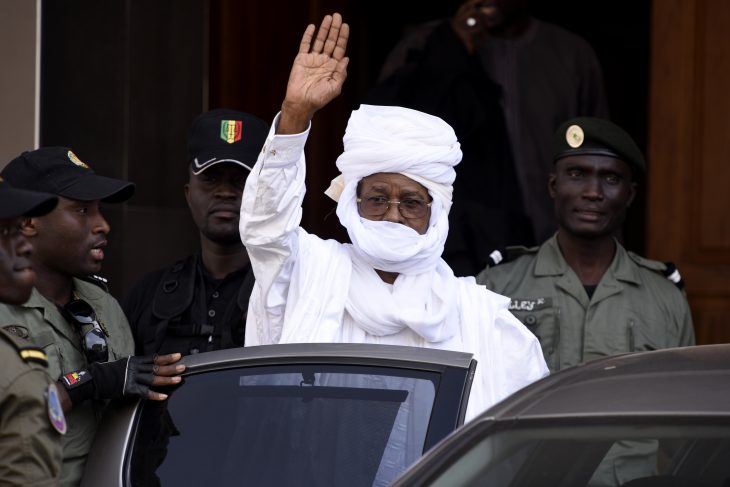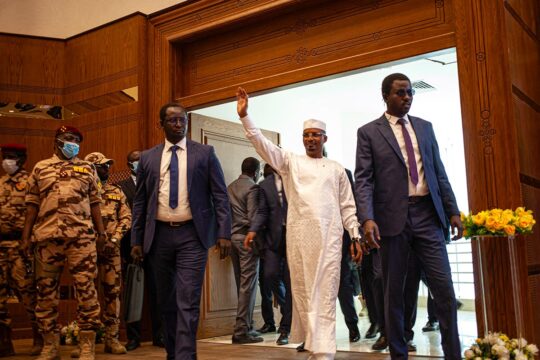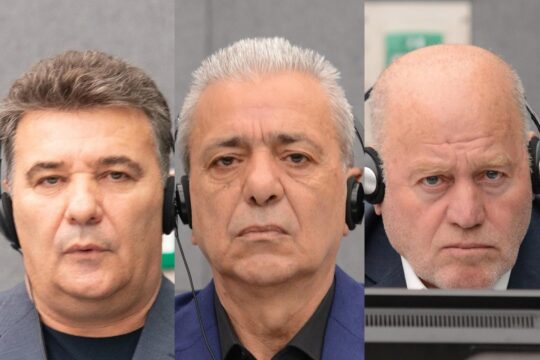Longstanding Senegalese human rights defender Alioune Tine has since the beginning of this year also been Amnesty International’s regional director for west and central Africa. In an interview with JusticeInfo.Net, he hails the trial of former president Hissène Habré which has started before the Extraordinary African Chambers (EAC) in Senegal after many twists and turns. But he regrets the absence of a credible, independent African mechanism to try crimes committed by leaders who are still in power.
JusticeInfo.Net: What is the significance of the Hissène Habré trial for Africa and for the world?
Alioune Tine: At Amnesty International we think this trial will put an end to 25 years of impunity and give hope to tens of thousands of victims of human rights abuses and international crimes committed under Habré’s regime. It is my personal view that for Africa, the Hissène Habré trial represents a major turning point for the continent and also for the rest of the world, as it can demonstrate that those suspected of war crimes and crimes against humanity cannot escape. Now, we are just hoping that justice will be done through a fair trial in line with international laws and standards.
JusticeInfo.Net: Is Africa really trying Africa or is it African victors trying the African vanquished?
AT: I would suggest we do not dwell on such considerations. What should be stressed is that the trial of Hissène Habré represents an important step in the fight against impunity for crimes committed on the continent. Since we are talking about Chad, that country will not be able to break with its tragic past if it does not bring to justice all those responsible for the many international crimes and violations of human rights. And that is true also for all the other African countries.
JusticeInfo.Net: How independent are the Extraordinary African Chambers if they can only try Habré, the vanquished?
AT: I think the Extraordinary African Chambers are an original experience that is being followed with interest by the international community. From that point of view, I can’t allow myself to doubt their independence. I also know that this court could provide an interim solution for the African Union if the institution has a real will to fight the cancer of impunity in Africa. Amnesty International played an important part in the decision taken by Senegal and the African Union on August 22, 2012, to set up the Extraordinary African Chambers to try crimes committed under the Hissène Habré government.
JusticeInfo.Net: What are the chances of success of the complaint filed by lawyer Mbaye Jacques Ndiaye on behalf of the “Chadian victims of Idriss Deby”?
AT: As you know, those who feel they were victimized have the right to file a complaint. I find that normal. When the Habré trial started last July, we also stressed that five other indicted former top officials of the Habré government had still not been brought to justice. We also pointed out that the current Chadian president Idriss Deby has not been indicted by the Extraordinary African Chambers although he was army chief of staff under the Habré regime. Research conducted by Amnesty International found that soldiers under his orders may have committed massacres in southern Chad in 1984. Idriss Deby subsequently fled to Sudan in 1989 and organized a coalition of armed groups that overthrew Hissène Habré in December 1990.
JusticeInfo.net: Does the complaint have any merit, even if only symbolic?
AT: Of course, and in my opinion the next step for the Chadian authorities is to do everything to ensure that all those presumed most responsible for international crimes committed under Hissène Habré are brought to justice.
JusticeInfo.Net: African dictators are generally not pursued by the law until after they leave office, in other words, once the harm has been done. What will it take for that to change? Do you think an African court (organ of the African Union) with a criminal justice mandate could be a solution? And how independent would it be?
AT: Today the problem is that in the name of a certain immunity, sitting presidents can under no circumstances be brought to justice by the International Criminal Court (ICC). That’s the problem. All the African presidents agree on that. That’s why they protect Bashir in Sudan and they asked Uhuru Kenyatta not to go and answer before the ICC.
An African court is indispensable to bring to justice the political elite and others who commit crimes, and with time it could also build independence. On the basis of decisions by the ECOWAS (Economic Community of West African States) court of justice and the African court of human and people’s rights, we think it is possible. Both courts have proved their independence from the States.
My personal opinion is that Africa should not drag its feet. It should be able to try crimes against humanity and other serious crimes committed on the continent by its leaders.
JusticeInfo.Net: In the meantime, is the ICC the best solution, as some say?
AT: Unfortunately yes. The fact that the ICC’s existence is based on the subsidiarity or “complementarity” principle means the African States lose judicial sovereignty. So Africans are currently in a cul-de-sac. On the one hand, they are not giving themselves the means to try their leaders, and on the other hand they refuse to have them sent to the ICC. But what we need to remember about the complementarity principle is that African States can, if they really have the will, build sovereignty by adopting laws on universal jurisdiction, as Senegal and South Africa have done. That’s the alternative to the ICC.







